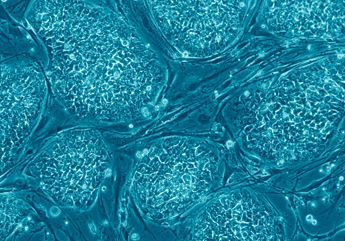Japan Gives Approval For First Clinical Study To Cure A Form Of Blindness Using Stem Cells Made From Human Skin

This week, the Japanese government approved the first clinical study of humans using induced pluripotent stem cells (iPS cells), The Japan Times reports.
A panel at the Japanese Health Ministry gave approval to the Riken institute and the Foundation for Biomedical Research to pursue trials to help regenerate retinas in people who have had degeneration in the light sensing part of their eye, also known as macular degeneration. It is apt that the first human trials of this technology occur in Japan because the pioneering work by Professor Shinya Yamanaka at Kyoto University helped him to co-receive the Nobel Prize in Medicine or Physiology last year.
The research team hopes to simply extract skin cells from patients who have the sight-robbing condition and turn them into stem cells. The next step would involve treating the stem cells to allow them to differentiate into the pigmented epithelium layer of the retina. These cells would then be transplanted into patients and monitored for their ability to graft and whether or not the transplanted cells cause any problems. Another clinical trial would then be performed to assess the ability of the transplanted cells to restore vision. Initial human clinical trials focus on safety of a product or treatment, and then progress to later stages where ability to treat a certain disease is assessed.
The planned trials are expected to begin next year after approval by the Minister of Health, Labor and Welfare, which is expected in July.
The risks in procedures such as this one is that the stem cells may not properly turn into the type of cell that scientists want them to; they may not graft properly to the eye, or the cells could still have some stem-cell-like properties and turn cancerous once implanted. Regardless, the clinical trials are being done in a well-thoughtout manner and all proper precautions are being taken to assure the safety of trial participants.
iPS cells were originally created in the laboratory by directing normal adult somatic cells to express five different genes through the use of a customized virus. The expression of these specific genes reprograms a cell to think that it is a stem cell, with the ability to turn into any cell type in the body, offering hope in the burgeoning field of regenerative medicine. New techniques try to treat adult cells with certain chemicals in order to encourage adult cells to "de-differentiate" back to the state of being a stem cell without the use of a virus.
Published by Medicaldaily.com



























